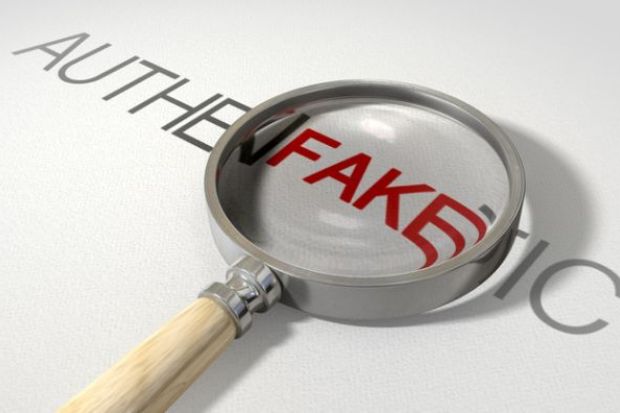Commercial cheating vendors claim to use the academic integrity tools favoured by many universities to attract customers and vouchsafe the originality of their work.
Plagiarism checks feature among the services offered by one website examined by Times Higher Education. Web browsers who copy and paste content are promised “free plagiarism reports” after they supply their email and phone contacts.
“Get Free Turnitin Report That Ensure A-Grade”, urges the site, which also touts a “cost of living calculator” and accommodation advice. We “will help students…by providing authentic course advices and reviews. But first of [sic] the block will be the most difficult piece of the entire chain– Assignments and Exams.”
The “Assignment Help Service” is “100 per cent plagiarism free”, the site proclaims. “Before we send any assignment solution to our students, we run plag check not once but twice. Therefore all our solutions are absolutely Original.”
THE Campus resource: How to deter contract cheating in online assessment
Turnitin said its products were not involved. “Turnitin has seen its name used popularly – and at times synonymously – with text similarity checking tools, even for products that are not created or hosted by Turnitin,” a spokeswoman said. “Essay mills falsely marketing the use of Turnitin tools is another tactic used to incentivise students into contract cheating.”
Purported discounts are another tactic, with the website promising A$100 (£54) “instant” credits for browsers who provide their email addresses. Upon doing so, they are told that A$50 has been credited to their accounts, with another A$50 forthcoming when they supply phone numbers.
Australian researchers have found that such ploys are common, ranging from a A$2 incentive for providing feedback to a 50 per cent discount for bulk orders and guaranteed refunds for students who fail to earn high distinctions. The websites also use gamification, artificial intelligence “and other functions that universities, in some cases, are only beginning to introduce”.
In a study published in the journal Research and Practice in Technology Enhanced Learning, the researchers tracked the burgeoning popularity of contract cheating sites. Google searches on the term “assignment help” yielded 302 million results in early 2021, up from 279 million in mid-2020.
One site was estimated to have 420,000 customers around the world. Another claims to have 5,000 writers and more than 26,000 “academic assignment helpers”.
Charles Darwin University lawyer Guzyal Hill, who undertook the study with e-learning expert Jon Mason and the University of New England’s Alex Dunn, impersonated a customer to research how the companies operated. The biggest surprise was the ease of accessing services, with many sites featuring 24-hour chat functions.
“You can request call-back,” she said. “You get follow-up. They keep sending emails. I was thinking it would be difficult to access these sites. It’s not. It’s very easy.”
Register to continue
Why register?
- Registration is free and only takes a moment
- Once registered, you can read 3 articles a month
- Sign up for our newsletter
Subscribe
Or subscribe for unlimited access to:
- Unlimited access to news, views, insights & reviews
- Digital editions
- Digital access to THE’s university and college rankings analysis
Already registered or a current subscriber? Login








